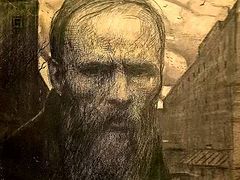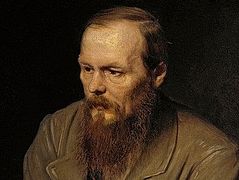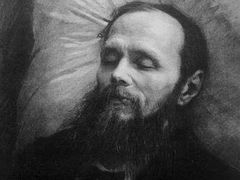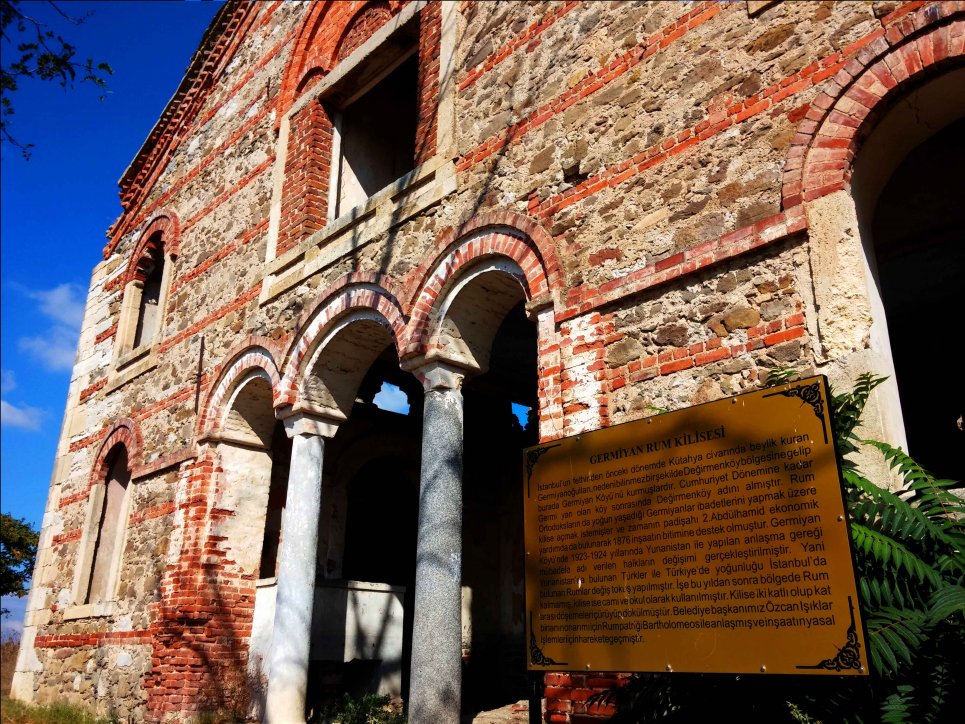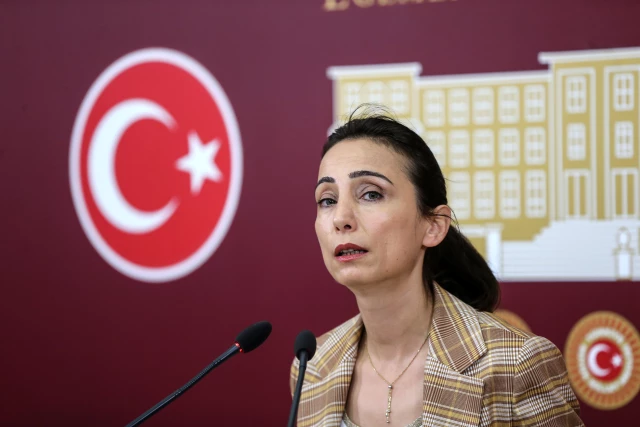Although Abbot Tryphon (Parsons), the head of the All-Merciful Savior’s Orthodox Monastery in Washington State, had a tortuous journey towards Orthodoxy, which included a departure from Lutheranism, work as a psychologist, and a passion for Trotskyism, now the wise priest shares his experience with hundreds of his spiritual children who come to him for support and consolation.
 Abbot Tryphon (Parsons)
Abbot Tryphon (Parsons)
“I considered Lutheranism to be the most correct, but I didn’t find any spiritual nourishment in it”
—Fr. Tryphon, tell us about your family. Was it Christian? Were Christian traditions important in it?
—They were very important. My mother was an organist in a Lutheran church. I remember going to church as a child and my parents took it very seriously. But in the mid-1970s they both followed me and embraced Orthodoxy.
—How did you find answers to your philosophical and religious questions in your childhood and youth?
—Back then I just accepted the fact that I was Lutheran. I considered Lutheranism to be the most correct from a theological point of view. In my college I was a very active parishioner and a member of the Lutheran Students’ Association, but at some point I began to move away from this and realized that it was not for me.
—Why?
—I didn’t find any spiritual nourishment in it.
—You said you renounced your Lutheran past. Why did you do that? What displeased you in Protestantism?
—I quit the Protestant Church in my second year at college. It no longer met my spiritual needs. I no longer had the feeling that this gave me some kind of foundation. Switching to politics, I left Christianity.
“I saw poverty and sensed that Christianity had failed”
—Having quit the Lutheran Church, you became an activist of the Trotskyite Socialist Workers Party (SWP) of the USA. In Russia hardly anyone understands how you can become a Trotskyite in such an absolutely capitalist country as America...
—It’s quite possible. Trotskyites are very active here. SWP has a lot of followers. Actually, most of the violent protests that have spilled over into the streets of American cities recently are in one way or another related to the leaders of the Trotskyite and Marxist movements.
—But in your time, you found those people. What was their ideology and why did it attract you?
—I found them in my college via liberal-minded teachers and other students. Like many young people today, I felt that the government was deceiving me. We have poverty, we are faced with racism in our country. I sensed that Christianity had failed, and politics became the only answer.
—What was the reaction of your family and friends? Did they approve of your passion for Trotskyism?
—My parents were very worried. We had some friction in the family, but they didn’t try to influence me. I think they understood that nothing would make me change my position. I am sure my father and mother prayed for me, though they never told me about this.
—Why did you decide to become a psychologist before your conversion to Orthodoxy and then abandoned this profession? What pictures of man’s inner world did you see?
—Over time, I began to understand that I felt a spiritual vacuum in my heart. As a psychologist I couldn’t give people what they needed—they needed something deeper. Thanks to this I discovered Orthodoxy, and never returned to my old life.
—As a psychologist, did you see the spiritual in people?
—I did see something, but I didn’t understand what it was. It was because at that time I knew nothing about Orthodoxy. When I converted to the faith, I found questions to all the answers I had earlier had.
—An acquaintance of mine believes that no psychologists are real Christians, and they instill ideas in their patients that are totally different from those of the Church. Do you agree with this?
—I would say that this applies to most psychologists.
—Why?
—The whole essence of psychology is based on humanism.
—But humanism isn’t generally considered wrong. Why does humanism have nothing to do with Christianity?
—Humanism means freedom from God and the search for solutions to problems in this freedom. It is about man and not about God.
“I felt that God was speaking to my heart”
—How did you first find an Orthodox church?
—It was the Russian St. Nicholas Cathedral in Seattle. As a college student, I was walking by and heard the bells ringing, went inside and found myself at the Divine Liturgy, celebrated by Bishop Nektary (Kontsevich) of Seattle. I had no idea about Orthodoxy and didn’t understand a word in Slavonic. Thanks to my Lutheran past I could more or less understand what was going on. I remember thinking that I would like to be Russian, because then I would be able to become Orthodox. It seemed to me that you needed to be Russian or Greek to become Orthodox!
My second encounter with Orthodoxy took place many years later in San Francisco, at the Holy Virgin Cathedral, where the relics of St. John of Shanghai and San Francisco are kept. It was the turning point in my journey, after which I accepted Orthodoxy. St. John was not canonized yet, and his relics rested in a chapel under the sanctuary, in the lower part of the cathedral. I came to the hierarchal Liturgy and felt as if I were in a throne room! It was awesome, it was a completely different realm. I had a feeling that I had been moved to a different place and time, and I wanted it to go on as long as possible. Outwardly, nothing special was going on, but I did feel that God was speaking straight to my heart—and I realized that Orthodoxy is the true Christianity about which I had known nothing before.
—Was the fact that you “accidentally” came to the Liturgy really a coincidence, or did God bring you to Orthodoxy in this way?
—I believe that God brought me to Orthodoxy. He called me, but I was unaware of it.
—On embracing Orthodoxy, did you immediately give up all the ideas of Trotskyism?
—By that time, I had stopped participating in the left-wing movement and withdrawn from party affairs because I was tired of constantly feeling anger and being around angry people. Some ideas, especially political ones, absolutely didn’t correspond to the Orthodox faith, and I decided to give them up and share with people only what I considered to be true. Over time, I felt that the Lord was taking me away from my former convictions.
“Monasticism allowed me to devote my life to Orthodoxy”
—When you were young, you were attracted by the ideas of Trotskyism. What ideas attracted you to Christianity?
—I viewed many things that were going on in the USA from a liberal perspective. I didn’t see any problems in same-sex marriage and believed in evolution. There were plenty of liberal ideas in my mind, but I decidedthat if the Orthodox Church doesn’t teach this, I should keep quiet about things I knew about and which I thought not to be in line with Church teaching. Later I found that the Lord had freed me from those false teachings, and I immersed myself in Orthodox doctrine morally and spiritually.
—What was the most difficult thing for you in Orthodoxy and why? How did you manage to overcome these difficulties? Perhaps someone helped you?
—The deeper I immersed myself in the faith, the more serious were the changes that took place in me, and my former beliefs crumbled. My spiritual father, Archimandrite Dimitry (Egorov) from the Russian skete in Santa Rosa, contributed much to this.1 His meekness, love for Christ and holy wisdom transformed me. He had a great influence on me.
 At the All-Merciful Savior Monastery
At the All-Merciful Savior Monastery
And of course, St. John of Shanghai had an enormous impact on me from the moment I first visited his shrine. When ROCOR canonized him in 1994, I was present at the ceremony in San Francisco. By that time I had been convinced of his sainthood and was happy that the Church had glorified him. He is our monastery’s patron-saint, and I feel his spiritual support.
—Why did you decide to become a monk? What were the circumstances surrounding this? How did monasticism open up to you?
—When I first came to the cathedral in San Francisco just to pray, I didn’t want to leave it. I wanted it to become part of my daily life and not just on Sundays. Monasticism allowed me to devote my entire life to Orthodoxy.
—Was it difficult to change your way of life and thinking after your tonsure? How have you been able to change yourself?
—I asked the Lord to help me and give me strength to do what I wanted to do.
—Was there much that you wanted to change?
—At the time I adhered to liberal views on many things, and it depressed me. But I saw that Orthodoxy had a different view of these, and when I was at Orthodox services I felt peace. When I received Communion, I felt God’s blessing. I felt that something important was hidden behind this and believed that the Lord would change my thoughts in due course. And He did.
—Did monasticism affect your relationships with your family and friends? Was it difficult for them, and you, to accept these changes?
—At first it was really hard for my parents and they were very disappointed that I had abandoned my profession. My father and mother knew that I no longer attended the Lutheran church, but they stayed in it. When they saw the changes in their son after he had become a monk, they joined the Orthodox Church.

—That’s an interesting turning point: Your parents didn’t follow you when you became a Trotskyite, but they embraced Orthodoxy after you. How can you explain these two absolutely different reactions?
—I think they followed me because every day I prayed that God would help them discover Orthodoxy by changing me and making me the best possible son for my parents.
—Was it difficult for them to change their faith?
—This happened almost instantly. They first came to an Orthodox church in their city, and after less than a week they began to prepare for Baptism. They were baptized almost a month later. That was a true miracle. I baptized them and experienced a great joy. Now they are buried next to each other at an Orthodox cemetery.
—You identify yourself as a person who is largely focused on Russian culture. Can you explain the reasons? Perhaps you have been influenced by some masterpieces, writers or composers?
—I have Norwegian and Scottish blood in my veins—and the Celts were originally Orthodox. At the same time, I sensed some close link to Russians. The fact that Russians stand during their services and their priests wear cassocks and beards even in the streets of American cities was appealing to me. I saw it in a society that had become totally secular—now even Catholic priests by their appearance are no different from others. All of this was conducive to my immersion in Orthodoxy.
—What are the most difficult or tragic moments on your path as an Orthodox priest, and, conversely, the happiest ones?
—I have served as a chaplain at the local police and fire department for nearly twenty years. 11,000 people live in our district, but the majority of them don’t adhere to any religion. As a chaplain I help those who have no priest. Several years ago we had the highest suicide rate in Washington State. In most cases they were committed by young people. I took it hard. It was very difficult to stay strong and communicate with parents who had just lost their child. On some occasions I managed to save people from committing suicide or a crime; however, according to the law, I have no right to talk about it. I thanked God for giving me the opportunity to help those who needed it.
As for the happiest stages in my journey, it was the canonization of St. John of Shanghai. It was a miracle.
“I try to make sure that people see the truth of Orthodoxy”
 —What would you say to people who, like you almost fifty years ago, are now trying to change the world—as they think, in the name of freedom—but in fact are probably leading it to chaos? How can one convey the Gospel to them and bring them closer to God?
—What would you say to people who, like you almost fifty years ago, are now trying to change the world—as they think, in the name of freedom—but in fact are probably leading it to chaos? How can one convey the Gospel to them and bring them closer to God?
—Unfortunately, since Christianity in America manifests itself in the form of Calvinism and has little to do with the history and memory of the Church, many people don’t know what it means to be a Christian. As an Orthodox monk and priest I try to share the joy and consolation that I experience with people. I want them to see the truth of Orthodoxy through me and the way I communicate with them.
—This problem concerns not only the USA, but the whole world. How can it be solved?
—The America’s problem is that it has too many denominations, and the separation of Church and State is at the core of our country. And now that the left-wing movements are trying to take power—they want to eradicate any form of Christianity. That’s why I look with admiration at how Church and State leaders in Russia are uniting people and bringing them to the ancient apostolic traditions of faith.
—What do you say to people who haven’t yet decided on their faith and come to you for spiritual advice?
—I usually recommend them books to read. Apart from this, I say that they should move forward, and I talk about the importance of the Jesus Prayer. I may say: “Don’t pray for specific things, but ask God to illuminate you with His Light and reveal His truth to you.”
—Do they hear you?
—I don’t know. Many hear, while many don’t hear.
—You call the Jesus Prayer the prayer of love, because in it we ask for God’s mercy, trust Him, and don’t talk about earthly things. How has it helped you, and how can it help others?
—For me the Jesus Prayer became the power that helped me leave behind all vain concerns and bring my consciousness in line with the Church.
—You write books, one of which, The Morning Offering, is being prepared for release in Russian. Can you tell us more about it?
—The book has the same title as my daily blog. I wrote it to help Orthodox Christians get spiritual support. It has been a bestseller for several years. Now it is being translated into Russian in the Publishing House of Moscow’s Sretensky Monastery. I was privileged to attend Vigil and the reception there on the eve of the unification of the two branches of the Russian Church in 2007. I was amazed by the beauty of the monastery and the goodwill of the brethren. During that stay I was fortunate enough to meet Metropolitan (then Archimandrite) Tikhon (Shevkunov) for the second time. We had first met several years previously in Nyack, NY, where negotiations were held. Vladyka Tikhon was just the right person needed in order to represent the Moscow Patriarchate in the dialogue. At that meeting, sixteen representatives of ROCOR accused the Moscow delegation of betraying the Church of Christ. I came up to the microphone, bowed and apologized for my brothers. Fr. Tikhon bowed in reply, and the atmosphere changed at once.
 Feodor Mikhailovich Dostoevsky. Portrait by Vasili Perov, 1872. Photo: wikimedia.org
Feodor Mikhailovich Dostoevsky. Portrait by Vasili Perov, 1872. Photo: wikimedia.org  Dostoevsky as a military engineer. Photo: wikimedia.orgWe owe a great deal to Dostoevsky. It has often been considered that no other author has brought so many modern heterodox to Orthodoxy. Why this is true could be the subject of volumes. Even so, very little has been published specifically about Dostoevsky and the Orthodox Church. Perhaps this is because Dostoevsky was not a religious figure by any reckoning. He was a religious searcher who found his soul’s desire in Jesus Christ, in His true Church; and because he was such an abundantly gifted writer, and because his writing could not be separated in any way from his own deep convictions, his books lead us in a mysterious way to those deep convictions. That is why, even if you have read his books at some time in your life, such as in literature classes or in your youth, you will not find it unrewarding reread them again and again.
Dostoevsky as a military engineer. Photo: wikimedia.orgWe owe a great deal to Dostoevsky. It has often been considered that no other author has brought so many modern heterodox to Orthodoxy. Why this is true could be the subject of volumes. Even so, very little has been published specifically about Dostoevsky and the Orthodox Church. Perhaps this is because Dostoevsky was not a religious figure by any reckoning. He was a religious searcher who found his soul’s desire in Jesus Christ, in His true Church; and because he was such an abundantly gifted writer, and because his writing could not be separated in any way from his own deep convictions, his books lead us in a mysterious way to those deep convictions. That is why, even if you have read his books at some time in your life, such as in literature classes or in your youth, you will not find it unrewarding reread them again and again. The Parents - Mikhail Andreyevich and Maria Fyodorovna Dostoevsky. Photo: wikimedia.org
The Parents - Mikhail Andreyevich and Maria Fyodorovna Dostoevsky. Photo: wikimedia.org  Staged execution on Semonov Square. Photo: wikimedia.org
Staged execution on Semonov Square. Photo: wikimedia.org  Anna Grigorevna Dostoevskaya (Snitkina). Photo: wikimedia.orgHis personal life was also full of contradictions. In exile he fell in love with a married woman, and married her after she became a widow, but his marriage was unhappy and tumultuous. His wife died of tuberculosis, but he would only know the joy and peace of a happy marriage after all his financial failures forced him to hire a secretary. This secretary became his second wife, who although not rich herself had to sell all her valuables to pay off his debts. She would soon have to endure a period when they were always on the brink of penury due to his gambling addiction. But after his death, his devoted Anna Grigorevna would write her own biography of her husband that exudes love and admiration from every page—without passing over the genius’s obvious weaknesses. She called him the “most chaste of men”, and a picture of him emerges as a combination of selflessness, compassion, and heart bottomless in its ability to love.
Anna Grigorevna Dostoevskaya (Snitkina). Photo: wikimedia.orgHis personal life was also full of contradictions. In exile he fell in love with a married woman, and married her after she became a widow, but his marriage was unhappy and tumultuous. His wife died of tuberculosis, but he would only know the joy and peace of a happy marriage after all his financial failures forced him to hire a secretary. This secretary became his second wife, who although not rich herself had to sell all her valuables to pay off his debts. She would soon have to endure a period when they were always on the brink of penury due to his gambling addiction. But after his death, his devoted Anna Grigorevna would write her own biography of her husband that exudes love and admiration from every page—without passing over the genius’s obvious weaknesses. She called him the “most chaste of men”, and a picture of him emerges as a combination of selflessness, compassion, and heart bottomless in its ability to love.

